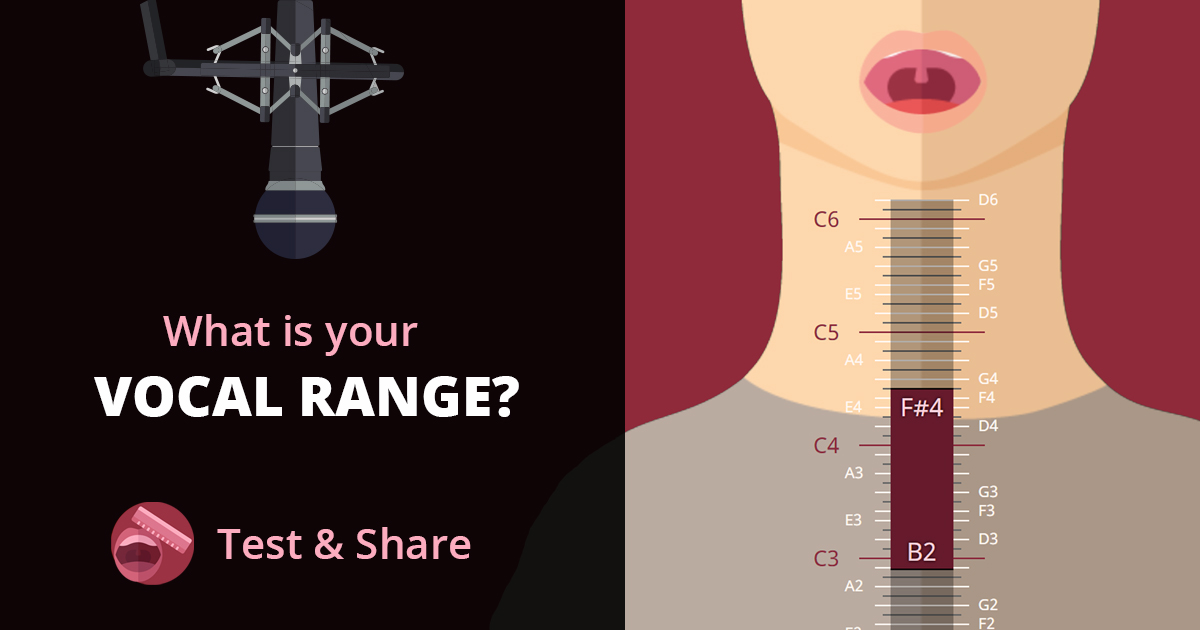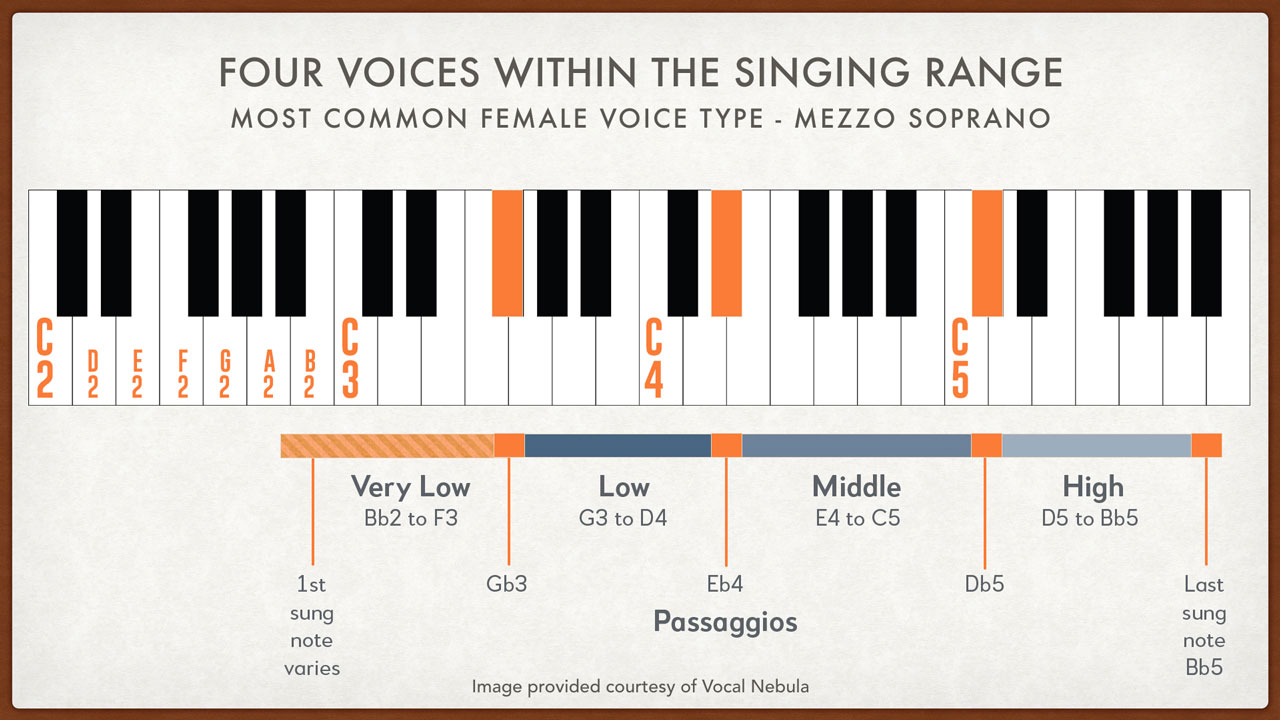Discover Your Voice: A Guide To Vocal Range Tests & Singing Better!
Are you ready to unlock the full potential of your voice? Understanding your vocal range is not merely a technical exercise; it's the cornerstone of vocal artistry and a gateway to vocal health, opening the door to a world of songs and performance possibilities.
Vocal range tests are fundamental tools for singers, vocalists, and anyone passionate about using their voice. From beginners taking their first steps to seasoned professionals honing their craft, knowing your vocal range significantly impacts your singing technique and overall vocal health. This guide delves into the nuances of vocal range tests, revealing methods to determine your range, and offering practical tips to improve and sustain your vocal abilities.
Knowing your vocal range goes beyond choosing songs that suit your voice; it enhances your performance skills. A vocal range test provides insight into your unique voice type, which helps select appropriate repertoire and prevents vocal strain. This guide equips you with the knowledge to assess and develop your vocal skills confidently.
- Remoteiot Raspberry Pi Secure Ssh Key Access Guide
- Bestgore Alternatives Explore Safe Engaging Platforms
| Key Components of Vocal Range Assessment | |
|---|---|
| Concept | Description |
| Vocal Range | The spectrum of pitches a singer can produce, spanning from the lowest to the highest note. Typically measured in octaves and influenced by vocal cord size, technique, and vocal health. |
| Vocal Registers | The distinct areas of a singer's voice, each characterized by specific qualities. Includes chest voice (lower register), mixed voice (transition register), and head voice (upper register). |
| Purpose of Testing | To understand vocal capabilities, select appropriate songs, and prevent strain, crucial for technical improvement, and performance preparation. |
| Types of Ranges | Categories based on vocal range, including Soprano, Mezzo-Soprano, Alto, Tenor, Baritone, and Bass. |
| Common Mistakes | Skipping warm-ups, poor technique, and not recording results are common pitfalls that affect accuracy. |
| Tools for Testing | Piano/keyboard, vocal tuner apps, and online websites can determine the range accurately. |
Vocal range, at its core, is the breadth of musical notes a singer can produce, extending from the deepest low to the soaring highs. This measurement is usually expressed in octaves, a scale encompassing eight notes, and is influenced by various factors. The size and condition of your vocal cords, the techniques you employ, and your overall vocal health all play pivotal roles. Comprehending your vocal range is the initial key to choosing songs perfectly suited for your voice.
The voice isn't a monolithic entity but is naturally divided into vocal registers. Each register is distinguished by its unique sound qualities and physical sensations.
- Chest Voice: This is the foundational register, typically resonating in the chest, perfect for speaking and lower singing notes.
- Mixed Voice: This area is a skillful blend of chest and head voice, facilitating a smooth transition between vocal registers.
- Head Voice: The lighter upper register is often used for reaching higher notes and conveying a sense of lightness and ease.
Vocal range tests are much more than a formality; they are essential for any serious vocalist for several crucial reasons.
- Girthmaster Miaz The Duo Taking Over Content Creation 2024 Guide
- Ims Kirby Dog Incident What Happened Why It Matters
- Self-awareness: The ability to identify your vocal limits is critical for choosing songs and preventing vocal strain.
- Technique improvement: Recognizing your vocal capabilities is instrumental in improving your technique, which ultimately leads to enhanced vocal health.
- Performance preparation: Accurate range assessments are invaluable when preparing for auditions and performances.
Conducting a vocal range test can be straightforward. Follow these simple steps:
- Prioritize warming up your voice with gentle exercises to prevent any strain or injury.
- Using a piano or a digital tuner, start at middle C and sing the note.
- Gradually descend, singing each note until you can no longer comfortably produce a sound.
- Repeat the process going upwards, starting from middle C.
- Record your lowest and highest notes. That will help to determine your vocal range.
Vocal ranges are typically categorized into different types. Understanding these categories is crucial for singers.
- Soprano: Typically from C4 to C6, this is the highest female voice.
- Mezzo-Soprano: Often from A3 to A5, this is a medium female voice.
- Alto: Typically from F3 to F5, this is the lowest female voice.
- Tenor: Generally from C3 to B4, this is the highest male voice.
- Baritone: Typically from A2 to A4, this is a medium male voice.
- Bass: Usually from E2 to E4, this is the lowest male voice.
Improving your vocal range demands dedication, consistency in practice, and the proper application of techniques.
- Regular Warm-ups: Always warm up your voice before singing to prevent strain.
- Breath Support: Focus on your breathing technique to provide a steady airflow while singing.
- Vocal Exercises: Incorporate scales and arpeggios into your practice routine.
- Hydration: Keep your vocal cords hydrated by drinking plenty of water.
- Limit Strain: Avoid pushing your voice beyond its limits to prevent damage.
It's easy to make mistakes during vocal range tests, which can skew your results. Being aware of these errors can help you achieve more accurate assessments.
- Skipping Warm-ups: Failing to warm up can result in a limited range.
- Not Using Proper Technique: Poor technique can lead to strain and inaccurate assessment.
- Forgetting to Record: Always document your lowest and highest notes for reference.
Fortunately, several tools can assist in accurately determining your vocal range.
- Piano or Keyboard: A traditional method to find your vocal range.
- Vocal Tuner Apps: Various apps are available that can analyze your pitch and range.
- Online Vocal Range Test Websites: Many websites offer interactive tests to determine your range.



Detail Author:
- Name : Israel Schroeder Sr.
- Username : drath
- Email : gusikowski.lorna@hotmail.com
- Birthdate : 1995-11-25
- Address : 60830 McCullough Groves Lake Samara, ME 05011-2023
- Phone : +1 (442) 309-9744
- Company : Daniel PLC
- Job : Pediatricians
- Bio : Et aut nobis fugit quisquam alias. Ipsum non ea incidunt id. Iste non ipsa corrupti id inventore. Iure est aspernatur repellat neque mollitia amet et.
Socials
instagram:
- url : https://instagram.com/annamarie4038
- username : annamarie4038
- bio : Totam aperiam est quis quo. Nulla aut accusantium nam repudiandae aliquam.
- followers : 4087
- following : 1773
tiktok:
- url : https://tiktok.com/@annamariehayes
- username : annamariehayes
- bio : Vero et et voluptatum ipsum suscipit et debitis.
- followers : 3535
- following : 2717
twitter:
- url : https://twitter.com/ahayes
- username : ahayes
- bio : Qui illum totam unde quasi veritatis facere ullam. Dolor illum ut fugit iure aliquam. Id quia laboriosam animi rerum.
- followers : 5807
- following : 796
facebook:
- url : https://facebook.com/annamarie.hayes
- username : annamarie.hayes
- bio : Dolorum perspiciatis deleniti nulla. Velit odit voluptatem delectus sed.
- followers : 800
- following : 1550